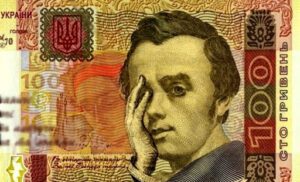
The Business Activity Expectations Index, calculated by the National Bank of Ukraine (NBU), rose to 51.6 in June from 50.5 in May, according to a survey of enterprises conducted by the National Bank of Ukraine and published on the website of the regulator.
“In June, companies across most of the surveyed sectors reported optimistic expectations of their business performance – the indices of the construction, industrial and services sectors moved above their neutral levels. Meanwhile, companies in the trade sector have reported pessimistic expectations for three months running,” the report says.
“Industrial companies upgraded their optimistic expectations of their business performance amid benign external and internal environments – the sector’s index was 52.5 in June, up from 50.8 in May. Respondents reported much firmer expectations for the amount of manufactured goods, while also remaining upbeat about an increase in the number of new orders, including new export orders,” the bank said.
“Service companies also improved their expectations of their business performance, with the sector’s index moving to 52.3 in June, up from 50.7 in May. Respondents expected an improvement in all performance indicators, expecting most strongly an increase in the amount of services that have been provided, and the services currently being provided,” it said.
“Residential housing and non-residential facility construction companies upgraded their performance expectations most of all. The sector’s index moved up from 49.4 in May to 58.1 in June – the highest figure among the sectors. Respondents expressed strong expectations for the amount of construction work done and the number of new orders, while also reporting intentions to hire more staff for the first time since September 2019,” according to the document.
“In contrast, trading companies were downbeat about their business performance – their index dropped to 48.2 in June, down from 49.9 in May, remaining below the neutral level for three months in a row. Respondents reported dimmer expectations about all performance indicators, such as trade turnover, goods purchased for sale, and staff numbers. Most companies in the sector expected a further decrease in their trade margins,” the report notes.
“Companies across all sectors expect a rise in their selling prices on the back of continued increases in raw material and higher purchase and supplier prices. Staff expectations remain guarded – companies across all sectors, apart from the construction sector, still report no intentions to expand their workforces,” the NBU says.
This survey was carried out from June 3 through June 22, 2021. A total of 316 companies were polled. Of the companies polled, 42.1% are industrial companies, 28.8% companies in the services sector, 24.4% trading companies, and 4.7% construction companies, while 36.1% of the respondents are large companies, 32% medium companies, and 32% small companies.

The restoration of the Egypt-Ukraine Business Council will be on the agenda of the intergovernmental bilateral meeting in June, which will be held in Egypt, Ambassador Extraordinary and Plenipotentiary of the Arab Republic of Egypt Ayman Ahmed Mokhtar Elgammal has said in an exclusive interview with Interfax-Ukraine.
He said that the Egypt-Ukraine Business Council will consist of representatives of Ukrainian and Egyptian business.
The Ambassador said that the Chambers of Commerce of both countries will present participants who are interested and have experience in doing business both in Ukraine and in Egypt. The council’s activities will also be aimed at promoting business and bilateral investments, holding various sectoral specialized exhibitions in both countries. Thus, since the council includes both sides, it will be clearer for business how to invest in Ukraine, Elgammal said.
The ambassador recalled that the Egypt-Ukraine Business Council was created ten years ago, but has been inactive in recent years.
The focus of activity (of the council) is not limited to investments. All types of business activities, investments, co-production, joint ventures and projects depending on the sector – everything will be promoted by this council, Elgammal said.
He is convinced that obtaining information on investment opportunities in Ukraine and Egypt through the council will be much faster and easier than through government institutions in both countries.

The State Agency of Ukraine on Energy Efficiency and Energy Saving intends to submit for approval by the government a program to support energy efficiency for 2022-2026 with the volume of UAH 10 billion, acting chairman of the agency Kostiantyn Hura has said.
“Since the insulation credit program is coming to an end this year, we have developed the concept of a new target program for 2022-2026 to support energy efficient measures in the amount of UAH 10 billion, which would include not only “warm loans” for individuals, but also apply to industry, the budgetary sector, transport and individual projects for the development of bioenergy,” he said in a comment to the Energy Reform portal at the all-Ukrainian forum Ukraine 30. Ecology.
He said the mechanism of the proposed program for loans to legal entities will differ from the program of “warm loans,” which consists in compensation for their part.
“We are now considering the possibility of launching such a mechanism as lowering the loan rate, in this case – at the double refinancing rate of the NBU, which is currently 6.5%. That is, the bank’s standard rate minus 13% if an entrepreneur takes out a loan for energy efficiency. The banks’ expenses will be compensated from the budget,” he explained.
According to the expert, the agency has coordinated the program with all interested bodies and is now awaiting approval from the Ministry of Energy.
“After that, we will send it to the government. I hope for its support,” Hura said, adding that such a program to stimulate energy efficiency will provide an opportunity not only to modernize housing, budgetary sectors, enterprises, but also have a positive effect on the economy, creating projects, jobs, increasing budget revenues.
As reported, the Cabinet of Ministers of Ukraine extended until 2021 the state target program for energy efficiency and development of the sphere of energy production from renewable energy sources and alternative fuels, being in effect from 2010 to 2020.

The European Business Association (EBA), in partnership with Huawei Ukraine and SAP Ukraine, has conducted an expert study of the current state of digital transformation deployment at private and public levels.
The study was conducted from March 29 to April 14, 2021, according to a joint report by the companies. It covered 130 general, executive and technical directors of EBA member companies.
The majority of respondents assess the volume and quality of the provision of state electronic services as high or satisfactory (7% and 55%, respectively). Among the most widespread electronic government services, the respondents rated the work of the Diia single portal of government services the best of all.
At the same time, according to the respondents, the development of digital infrastructure, as well as improving access to the use of modern technologies (digital inclusion) are definitely priority tasks for the state.
Thus, 47% of respondents assess the level of development of digital infrastructure as moderate, 42% – as low or very low. The majority of respondents also rated the level of digital inclusion as low or very low (54%).
At the same time, 55% of respondents believe that the level of digital transformation of their industries is moderate, 16% – high, another 6% – very high. At the same time, 23% consider it low or very low.
Of the directors surveyed, 41% rate the digital literacy level of their employees as moderate, 13% as low, and 46% as high.
In addition, 47% of directors rated the level of digital development of their business as moderate, 39% think it is high, another 5% – very high. Only 9% of respondents consider the level of digital transformation of their companies to be low.
At the same time, the overwhelming majority (89% of those surveyed) admitted that the corporate strategy of their company contains the goals of digital transformation.
According to the results of the survey, the integral indicator of the digital transformation index of Ukraine amounted to 2.81 points out of five possible and found itself in the negative plane.
According to the research methodology, the integral indicator of the index consists of five equivalent components: the general level of digital transformation of companies; digital transformation of industries; development of digital infrastructure; digital inclusion; volume and quality of state electronic services.
“We are witnessing a dynamic growth of the Ukrainian IT market. However, there are certain barriers that hinder the development of digitalization due to the rather complex regulation of the industry, emigration of specialists, weak infrastructure support for new projects, restrictions on the use of cloud technologies in the public sector, etc. This is confirmed by the results of an expert study,” Director of SAP Ukraine Maxim Matyash said.

DTEK is considering the possibility of expanding its oil and gas business in Ukraine, CEO of the company Maksym Timchenko has said in an interview with the Ekonomichna Pravda edition.
“We are constantly studying the deposits of all available players on the market. That is, we are open to expanding our business, without exception, with all players, including state-owned companies. If there are such opportunities not only for acquisitions, but also for joint activities, some kind of joint projects in exploration and production, we are ready for this,” he said.
According to Timchenko, in particular, the assets of Geo Alliance group for DTEK are “a potential area of our interest.” At the same time, he did not comment on the details of the negotiations.
As reported, in 2020 DTEK Oil and Gas increased natural gas production by 10.8% (by 180 million cubic meters) compared to 2019, to 1.84 billion cubic meters. In 2021, the company plans to increase gas production to 2 billion cubic meters.
Geo Alliance produced 203 million cubic meters of gas in 2020.
Geo Alliance is under the mandate of the international investment and consulting group EastOne, which unites the assets of Victor Pinchuk. In 2012, EastOne announced a strategic partnership between Geo Alliance and Arawak Energy Ukraine BV, part of the Vitol group of companies, one of the largest operators in the world energy market.

Ukrainian business has improved expectations of a slowdown in inflation over the next 12 months to 7.7% from 7.9% and the weakening of the hryvnia exchange rate to UAH 29.15/$1 from UAH 29.68/$1.
According to the results of a regular quarterly survey of business expectations of the country’s enterprises, posted on the NBU website, the business activity expectations index of enterprises increased compared to the previous quarter to 108.4% from 99.6%, returning to positive values.
According to the central bank, the improvement was mainly due to high estimates of the total sales of domestic products, the financial and economic condition of enterprises, investment costs for machinery, equipment and inventory, as well as investment costs for construction.
The survey shows that the respondents of all types of economic activity expect an improvement in their financial condition, with the exception of energy and water supply companies, which believe that their condition will not change in the next 12 months.
According to the report, the business expects an increase in product sales, including on the foreign market. Optimistic sentiments prevail in all sectors of the economy, except for energy and water supply.
For the sixth quarter in a row, the business is set to cut its employees, according to the survey. At the same time, respondents from trade and mining enterprises expect an increase in the number of their employees.
At the same time, the majority of companies (62.9%) plan to raise salaries for their employees over the next 12 months, and only 2% of companies are ready to cut salaries.
The survey shows that the share of companies planning to raise loans in Ukraine over the next 12 months dropped to 39.3% (in the previous quarter – 41.7%). The overwhelming majority of borrowers (78.7%) prefer to raise funds in the national currency. At the same time, the share of companies planning to take out loans abroad increased to 8.7% from 6.9%. It is indicated that high rates (55.9% of respondents) and excessive requirements for collateral (40.9%) were named the main obstacles to attracting new loans.
Some 687 enterprises from 22 regions of the country took part in the survey of business expectations. Among the respondents, 18.3% are processing industry companies, 16% – from wholesale trade, 15% – agriculture, 13.2% – transport and communications, 6.8% – mining industry, 4.8% – electricity and water supply, 4.5% – retail trade, 3.1% – construction, 18.2% – enterprises of other industries.